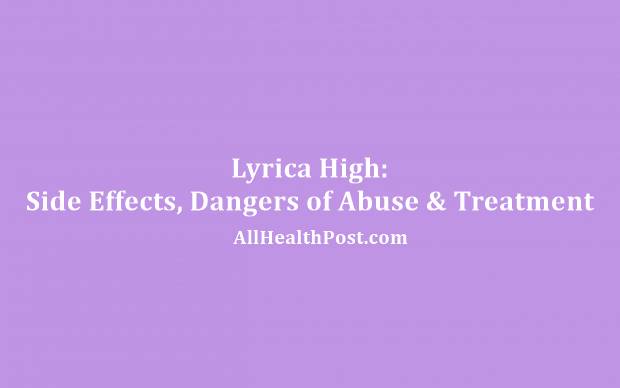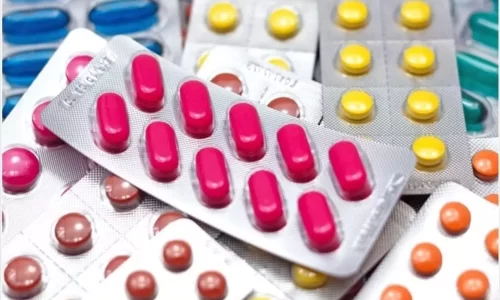Lyrica is a type of pain medication, approved by the FDA to treat pain occurring due to nerve damage, diabetics, spinal cord injury, or shingles infection. Lyrica is a brand name for the generic drug pregabalin used to cure any pain caused by partial seizures as well. Pregabalin was first introduced in 1990, and later it was launched in the US under the name of Lyrica in 2005. It comes in capsulated forms with varying doses.

Topics Covered
What is Lyrica?
Technically, Lyrica is an anticonvulsant drug which is designed to treat pain caused due to seizures and epilepsy. However, researchers reveal that the drug can cure a certain type of people who are suffering from anxiety or nerve pain. Lyrica is a type of drug that most people abuse. Abusing pregabalin with or without prescription may lead to serious addiction. Just like other painkillers, Lyrica addiction is a major issue that must be avoided.
What is Lyrica Used for?
Lyrica is a pregabalin drug commonly prescribed to cure pain caused due to diabetic neuropathy, multiple sclerosis, seizures, nerve damage, and other serious conditions.
Doctors commonly prescribe Lyrica to cure the following:
- Pain caused due to damaged nerves or neuropathic symptoms in the arms, feet, legs, hand, or toes.
- Pain caused due to shingles. It is the rashes that occur due to the infectious herpes zoster virus.
- A chronic condition called Fibromyalgia that causes pain, muscle stiffness, insomnia, and fatigue.
- Pain due to spinal cord injury.
- Additionally, it is recommended for patients who have epilepsy in combination with certain types of seizures.
Approved Dosage of Lyrica
Every individual may respond differently to Lyrica. Thus, the dosage prescribed by the doctor differs for every patient. It is recommended to take the dosage as per the prescription to avoid any symptoms of overdosing or addiction. Additionally, you must discuss other medications and allergic conditions with your doctor before taking Lyrica.
The approved dosage of Lyric differs from 150mg per day to 600 mg per day, depending on the severity of the ailment. A patient suffering from shingles is recommended 150 mg/day while a person suffering from high pain due to seizures may be given 600mg/per day. However, the dosage begins from 150 mg/day under all circumstances. The doctor may increase the dosage gradually depending on the patient’s tolerance.
Can Lyrica Cause a High?
Painkillers are subject to addiction. Though Lyrica is nowhere close to narcotics like oxycodone, morphine, hydrocodone or others, yet it can give you a high. You may start feeling relaxed and dependent on Lyrica if you consume it every day. The Drug Enforcement Administration has classified Lyrica as a Schedule V drug that means it has the lower potential for abuse in comparison to other drugs which have narcotics. However, Lyrica has substantial properties to elevate mood and give you a high, if consumed regularly.
Lyrica Overdose or Abuse
Lyrica produces a relaxing and euphoric sensation, due to which some people end up abusing the drug. Abusing a drug means getting addicted to it and finding you completely dependent on it. Abusing Lyrica may cause substantial side effects to your body, and you might end up overdosing on the same. When you are taking the dosage more than what is prescribed, you may risk yourself dangerously.
Although Lyrica is not as intoxicating as the narcotics, it gives you a sense of high and relaxation to the body. Especially when you are taking medicine to cure multiple sclerosis, you find it powerful and get an instant high. The relaxed feeling may lead to Lyrica abuse. Abusing the drug means taking more than the prescribed dosage without consulting the doctor.
Dangers of Lyrica Abuse
Abusing or overdosing Lyric may lead to blurred vision, drowsiness, dizziness, fatigue, ataxia, irritability, vomiting, poor condition, tremors and impaired memory. It may dangerously increase your blood pressure, and you may develop pancreatitis. Some people also suffer from suicidal thoughts due to Lyrica abuse.
Side Effects of Lyrica High
The most common side effects of Lyrica are:
- A headache
- Dry mouth
- Constipation
- Tiredness
- Dizziness
- Vomiting or Nausea
- Gas or stomach bloating
- Speech problems
- Elevated mood
- Confusion and anxiety
- Lack of coordination
- Weight gain
- Muscle twitching and swelling in parts of the body
- Itching, blisters
- Chest pain
- Shortening of breath
- Rash or hives
- Blurred or double vision
- Agitation or weakness
- Panic attacks
- Anxiety or depression
- Abnormal mood fluctuations and mania
- Suicidal thoughts
- Restlessness or irritability
How Does Lyrica High Feel Like?
When you overdose Lyrica to get high, it feels like sedation and gives you recreational effects. Though you may not feel high like other narcotics, you may find yourself dependent on the drugs for a relaxed feeling. Pregabalin, the main ingredient of the drug, produces psychoactive effects. The effects increase when you mix the medicine with antidepressants, anti-anxiety medicines, or alcohol. Though Lyrica is known as the Schedule V medicine which has potentially lower narcotics effect, it can give you high on overdose.
Lyrica is a central nervous system depressant that gives you anxiety relief during painful ailments. On overdose, Lyrica starts giving you sedative effects, and you may feel like a drunkard.
Lyrica High Withdrawal
Lyrica is a pregabalin drug that reduces pain during serious ailments like diabetic neuropathy, sclerosis, spinal cord injury, or epilepsy. The drug works effectively by reducing the pain signals and releasing pressure on the damaged nerves. However, when you have to stop taking medicine, you may find it difficult due to the sedative high it gives. Stopping the intake of Lyrica or decreasing the dosage may lead to Lyrica withdrawal symptoms.
In some cases, withdrawals may lead to life-threatening symptoms and require substantial medical care.
Symptoms of Lyrica withdrawal
The Lyrica withdrawal symptoms are more or less similar to the withdrawal of alcohol or other narcotics. The severity of withdrawal depends on the amount of dosage and the duration it was taken. When the medication is taken for a longer period, the body gets accustomed to Lyrica, and it may become difficult to withdraw from it.
People taking smaller dosage for shorter duration may suffer from mild withdrawal symptoms and can overcome easily. Below are few symptoms of Lyrica withdrawal:
- Headaches and anxiety
- Confusion, agitation
- Sweating
- Seizures
- Increased heartbeats or fluctuating blood pressure
- Insomnia
- Cravings for Lyrica
- Mood and behavioral changes
- Depression
- Suicidal attempts
- Vomiting or nausea
- Diarrhea
Acute withdrawal symptoms are minor and last for 1 to 2 days. However, residual withdrawal symptoms last a few weeks or longer and may need medical care.
Treating Lyrica Withdrawal
Detox treatment is considered as the best procedure to overcome the Lyrica withdrawal symptoms. The detox process is involved with formal addiction treatment that increases sobriety in the patients. Since the type of addiction differs from person to person, the treatment procedure also varies:
- Detox facilities
Medical counselors and supervisors provide complete care and monitoring to patients overcoming the complication of withdrawal. Detoxing treatment helps in attaining sobriety by cleansing the system from the residue of drugs.
- Inpatient treatment
This treatment is undertaken in a residential facility, where the patient stays from 28 days to 3 months, depending on their withdrawal difficulties. The treatment is carried out in a safe and structured environment. The patients are monitored with individual therapy sessions and psychiatric monitoring as well.
- Outpatient treatment
The outpatient treatment allows people to take care of the demands of work, school, or home by giving them special monitoring sessions. They are given individual medical care and psychiatric therapy by meeting the demands of the patients.
- Partial hospitalization
Partial hospitalization is provided to patients while they take charge of their work and home responsibilities. It is more like the outpatient therapy where the patient visits the hospital for group therapy or intensive individual sessions.
Medications that Help Treat Withdrawal
The addiction treatment is managed by lowering the dosage of the drugs over a period of time. The doctors use other medications simultaneously to treat the side effects of the withdrawal.
- Clonidine
It works as a mild sedative and helps in controlling the blood pressure. Clonidine helps in controlling withdrawal symptoms caused due to withdrawals of narcotics, opium, and alcohol and manages agitation caused due to withdrawals.
- Dexmedetomidine
It is a second line medication that is given to patients suffering from withdrawal symptoms. Dexmedetomidine is costlier than clonidine and is given only when the latter is not available.
Additionally, there are other medicines given by medical professionals to cure certain ailments that are cured by Lyrica.
- Seizures
Patients addicted to Lyrica for curing seizures are given anti-seizure medicine during the treatment of withdrawal symptoms.
- Gastrointestinal
Medicines like Zofran or Imodium are given to cure diarrhea or nausea caused due to withdrawal symptoms.
- Insomnia
Insomnia is a common side-effect of Lyrica withdrawal. Medical practitioners may give you medicine that aid in sleeping while treating you for withdrawal symptoms.
How Long Does it Take to Recover from Lyrica High?
When you suddenly stop taking Lyrica, it may cause severe withdrawal symptoms. Depending on your dosage, whether you are taking Lyrica for recreational purposes or for curing an ailment, you must stop it only under the guidance of a health practitioner.
Discontinuing the drug all of a sudden may lead to consequences and may be life-threatening as well. Recovering from Lyrica high may take around 3 months of detox treatment and group therapy sessions. Depending on the addiction, the patient may be asked to be in residential care under extreme medical supervision.
Lyrica High and Suicidal Tendencies
Like any other anti-epileptic drugs, Lyrica also carries a risk of developing suicidal tendencies among people. Lyrica may lead to extreme depression; give rise to panic disorders, and anxiety in Lyrica patients that may give rise to suicidal ideation. Other complications related to Lyrica are extreme cases of mania, violent nature, and aggressiveness among the patients.
Conclusion
Lyrica is an antiepileptic drug that acts as a painkiller in various ailments. It is often used to cure diabetic pains, seizures, multiple sclerosis, spinal cord injuries, and pain from other ailments. Although FDA has approved the drug and it is mentioned as a Schedule V drug that has no narcotics, overdosing on Lyrica may lead to drug abuse. Overdosing Lyrica may lead to life-threatening and suicidal symptoms and can be cured only through detox treatments. Thus, knowing the severe consequences of Lyrica addiction, you must consult your doctor before taking or withdrawing from the drug. Moreover, it is important that you never miss a dosage to get suitable results.
Posts You May Like:




